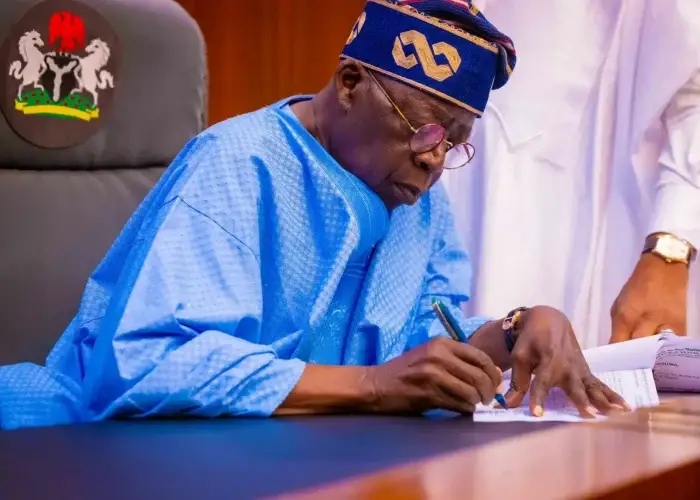
The Federal Government of Nigeria has announced the release of ₦570 billion to citizens across all 36 states. President Bola Tinubu made this announcement following a nationwide address on Sunday that sparked further outrage among the citizenry.
During his speech on Sunday, President Tinubu said that the government has achieved a total fiscal revenue of ₦9.1 trillion in the first half of 2024, marking a significant increase compared to the previous administration’s earnings.
He stated, “Our government has made significant strides in rebuilding the foundation of our economy to carry us into a future of plenty and abundance.”
The president hinted that over 600,000 nano-businesses have already benefited from the nano-grants, with an additional 400,000 expected to receive support soon. In addition to financial support, President Tinubu addressed Nigeria’s debt situation, saying that the debt burden has been reduced. He reported that revenue allocated for debt servicing has decreased from 97% in 2023 to 68% in 2024. He also said the government has cleared $5 billion in legitimate outstanding foreign exchange obligations “without any adverse impact on our programmes.”
Outside the optimistic claims, Nigeria is experiencing an inflation rate of over 34 per cent, the highest in nearly three decades. Essential items, such as rice, have doubled in price over the past year, while petrol costs have tripled since the removal of subsidies. Many families are now forced to ration food and seek cheaper alternatives, highlighting the disconnect between these claims of economic recovery and the harsh realities on the ground.
The economic reforms, including removing fuel subsidies and unifying exchange rates, have worsened the crisis. The naira has lost significant value, dropping to record lows against the dollar. This devaluation has increased the cost of imported goods, further straining household budgets and impeding the economy. This makes the ₦570 billion monetary support from the government inconsequential, as clear and sustainable reforms can stabilise the economy and improve living conditions.
About The Author
Related Articles
Tinubu Government Delays Release of Signed Tax Acts to the Public
Four days after President Bola Tinubu announced the signing of four tax...
ByMayowa DurosinmiJune 30, 2025As Tinubu Urges Africa-Caribbean Unity in Saint Lucia, Over 272 Nigerians Killed in June Alone
While Nigerians deal with deadly violence, worsening hunger, and mass flooding, President...
ByWest Africa WeeklyJune 30, 2025You Can’t Tax a Dead Economy: Nigeria Is Suffocating Under Its Own Policies
As Nigeria’s Central Bank clings to its benchmark interest rate of 27.5...
ByWest Africa WeeklyJune 30, 2025“Wike is Not a Blessing to Us, He’s a Disaster” — Workers Protest in Nigeria’s Capital Over Unpaid Wages, Poor Working Conditions
Staff members of the Federal Capital Territory Administration (FCTA) in Abuja barricaded...
ByOluwasegun SanusiJune 30, 2025













Leave a comment